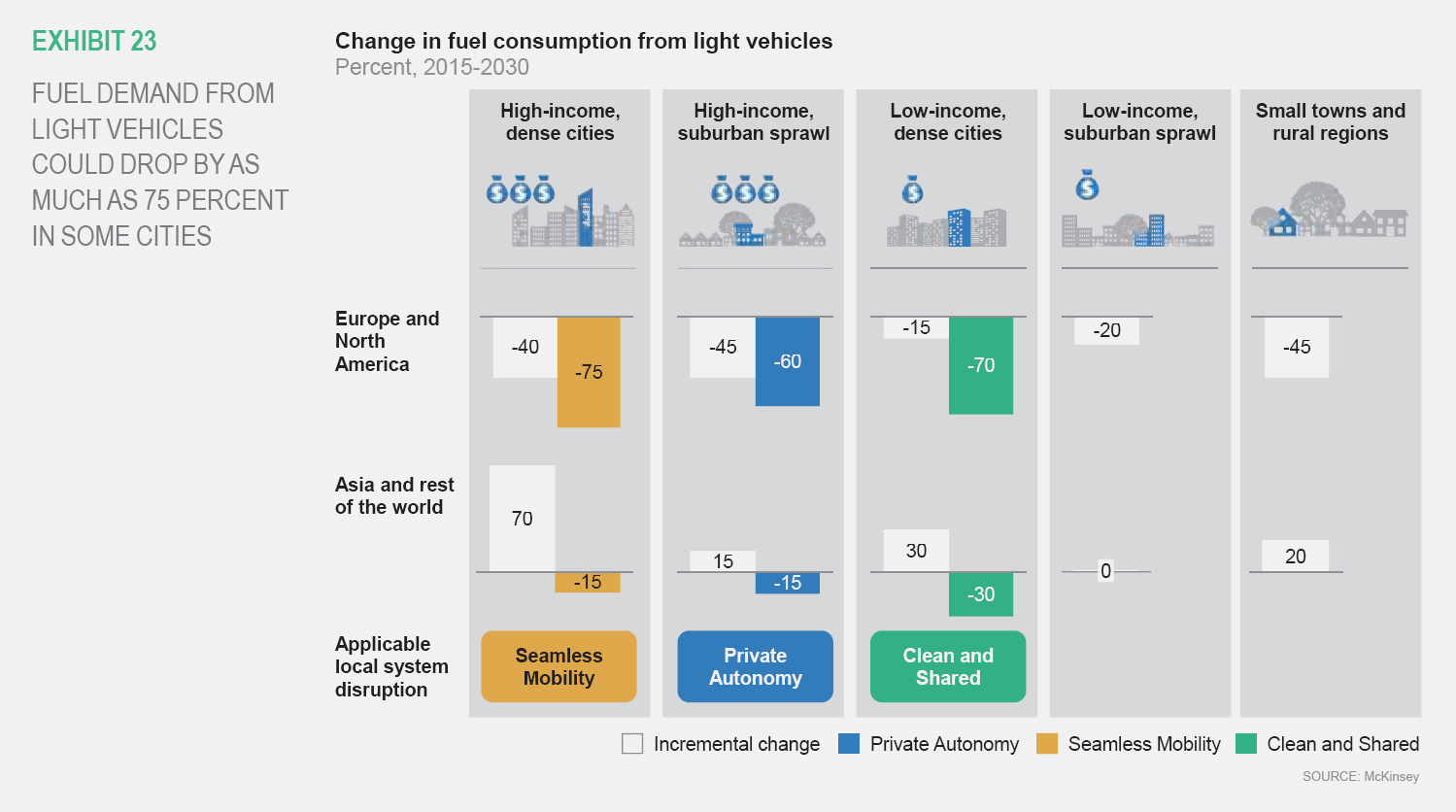McKinsey issued a report stating that most modern cities will be dominated by electric cars in 2030.
Today, a small number of cities, such as Amsterdam, Singapore, and Stockholm, are singled out as having effective mobility. With varying degrees of emphasis, they have efficient public transit, encourage cycling and walking, and have managed to limit congestion and pollution.
By 2030, McKinsey & Co expects a number of additional systems to be at the leading edge of the next phase of advanced mobility. In broad terms, the best will combine shared mobility, autonomy, and electrification with integrated systems, public transport, and infrastructure.
In specific terms, cities will navigate these possibilities differently. Local conditions—such as population density, wealth, the state of road and public-transit infrastructure, pollution and congestion levels, and local governance capabilities—will determine what changes occur, and how quickly.
For the near future in cities leading the advance, we envision three mobility trajectories, with trends such as sharing, autonomous driving, and electrification all moving forward at a different pace. Each is suited to a specific type of metropolitan area, whether it be a dense developed city, a suburban sprawl, or an emerging metropolis.